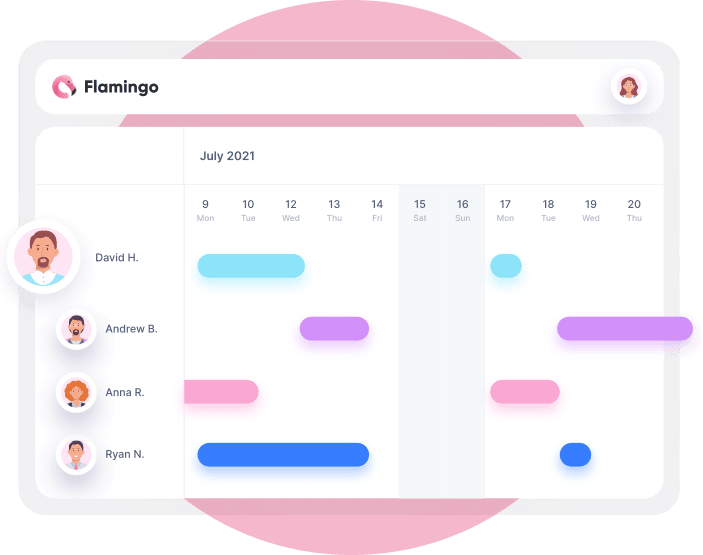
Flamingo is a leave management solution built for modern teams.
No more cluttered spreadsheets and manual data entry. Manage your entire team's leave, directly from Slack, and speed up your leave management workflow.
Learn more Sign Up FreeDoes your company have employees working in the Philippines? If so, read on to learn about the relevant laws you should know about in regards to vacation leave, sick leave, maternity and paternity leave, bereavement leave, and more in the Philippines.
This page is intended for reference purposes only and does not constitute legal advice. Please see official government sources or consult a legal professional for actual legal advice.
There are three categories of public holidays observed in the Philippines: regular public holidays, special non-working holidays, and special working holidays.
| Date | Holiday |
|---|---|
| January 1 | New Year’s Day |
| March 28 | Maundy Thursday |
| March 29 | Good Friday |
| April 9 | Araw ng Kagitingan / Day of Valor |
| May 1 | Labor Day |
| June 12 | Independence Day |
| August 26 | National Heroes Day |
| November 30 | Bonifacio Day |
| December 25 | Christmas Day |
| December 30 | Rizal Day |
| Date | Holiday |
|---|---|
| February 10 | Chinese Lunar New Year |
| March 30 | Black Saturday |
| August 21 | Ninoy Aquino Day |
| November 1 | All Saints’ Day |
| December 8 | Feast of the Immaculate Conception of Mary |
| Date | Holiday |
|---|---|
| November 2 | All Souls’ Day |
| December 24 | Christmas Eve |
| December 31 | New Year’s Eve |
For regular public holidays, workers must be paid their regular daily wage (in addition to having that day off). If they’re required to work on that day, they must be paid twice their regular daily rate.
Special non-working holidays grant the worker one and one third their regular wage, if they work this day.
Special working holidays do not grant any increase in pay, should someone work on one of these days.
After completing one year of service with a company, each employee is entitled to 5 days’ “service incentive leave” (SIL), which allows the employee to take leave with pay.
This is effectively the minimum requirement for paid annual leave in the Philippines. The Labor Code stipulates that the provision for service incentive leave will not apply to employees who are given at least five paid vacation days per year.
The SIL provision also does not apply to companies that regularly employ less than 10 employees.
Service incentive leave replenishes at the start of each year. Unused SIL must be paid out in cash at the end of the year, or upon termination of employment.
As to how regular vacation days accrue, whether they carry over at the end of the year, and how these days can be paid out, there is nothing in the law that stipulates what companies must do (outside of SIL provisions). This is up to each employee’s individual employment contract.
There is no legal requirement for sick leave in the Philippines. The entitlement to service incentive leave of 5 or more days can cover sick leave, vacation, or other personal reasons.
Companies may choose to offer paid sick leave on their own terms, to be stipulated by the employment contract. But there is no requirement by law to do so.
However, if an employee has paid into the social security system (SSS) for at least 3 months over a 12 month period, they may be entitled for medical pay if they are confined to a hospital for 3 days or more. This is paid by their employer, who can claim reimbursement from the government.
Female employees, if they have paid at least 3 months into the SSS in the last 12 months, are entitled to:
The benefits entitle the mother to 100% of their average daily salary credit (based on a scale by the SSS, a maximum of PHP15,000 per month). This is to be paid by the employer, who can claim it back from the SSS.
Married fathers are entitled to seven days’ paid paternity leave for their first four children. The father must be the legitimate spouse of the mother, and they must be cohabiting (living together).
Paternity leave is paid the same way as maternity leave – the employer pays the employee, and then gets reimbursed by the SSS.
Some solo parents may be eligible for up to seven days of paid parental leave, assuming they meet certain requirements for being single/unmarried.
Employees in the public and private sectors in the Philippines are entitled to three days’ bereavement leave, in the case of the death of an immediate family member.
Employees in the Philippines are allowed paid leave to vote in the country’s general election.
Women who are victims of certain violent acts are entitled to up to 10 days’ paid leave, to take care of medical and legal concerns.
It will be the woman’s option whether or not to take the leave. If not, it can’t be converted to cash, and is not cumulative. The leave period can be extended, should the need arise, if specified by the proper legal entity.
This page is intended for reference purposes only and does not constitute legal advice. Please see official government sources or consult a legal professional for actual legal advice.

No more cluttered spreadsheets and manual data entry. Manage your entire team's leave, directly from Slack, and speed up your leave management workflow.
Learn more Sign Up Free